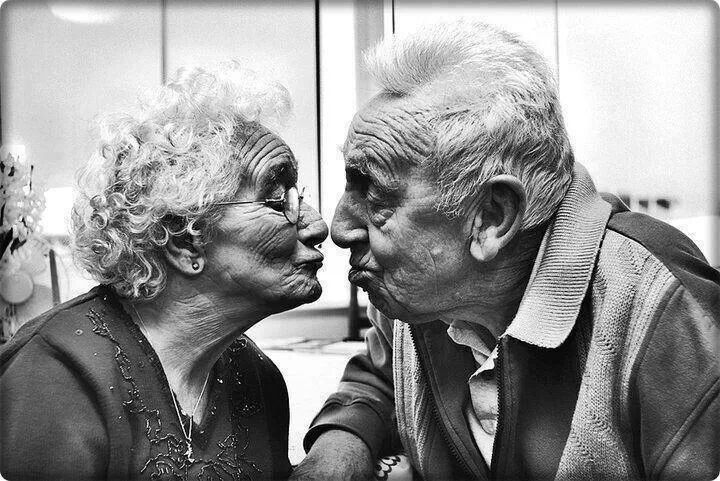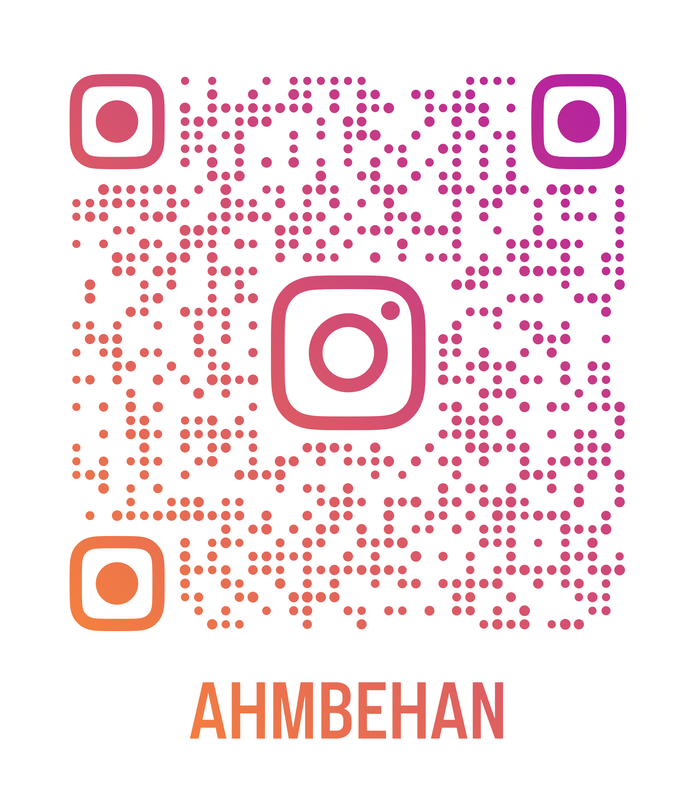|
This article offers insight on how to co-create true love in your romantic relationship Created by Harville Hendrix in the late 1970s and popularized in his bestselling 1988 book Getting the Love You Want: A Guide for Couples (Hendrix & Hunt, 1988), Imago theory suggests that couples unconsciously attract partners who reflect unmet needs from childhood, and that this allows for the healing of childhoods hurts; the feeling of not being loved the way we needed to be, or not having the safety and security we needed at the time, or losing the innate sense of joy and aliveness that we were born with, and through healing, re-discovering our true selves and a feeling of joyful aliveness that may have been lost. When a relationship forms and romantic love develops, the feeling of ‘being in love’ can become all consuming. This is because the brain releases the stimulant phenylethylamine which leads to feelings of euphoria and elation (Marazziti & Canale, 2004; Savulescu & Sandberg, 2008). Also known as the infatuation phase, the chemical ‘high’ experienced during this relationship phase can lead a person to idealise the other, so that only the positive aspects of the person are seen, and there is a failure to see their flaws, also known as the ‘Halo effect’. With this ‘perfect’ person, you feel safe, secure and so in love, and with this, a feeling of joy and aliveness is experienced. As a result, you believe you have found what you were looking for, or what was missing in your life, and now everything in your life is okay, until it isn’t. When the infatuation phase is met with reality and the real person, flaws and all, come into view, the relationship meets its first struggles, or it breaks. For couples that remain together, either the challenges are worked through, allowing the couple to move towards true love, or the couple remain together in a state of discontented acceptance. To live in ‘true love’ there first needs to be self-love, which means knowing yourself and your values, and allowing your true wants, hobbies, hopes, dreams, friendships, and your music and movie choices to co-exist with those of your partners. This can trigger certain fears:
Essentially, the fear of loosing the feeling is safety, security, love and joyful aliveness that was so needed and wanted comes through individual lenses of fear, causing a person to repress themselves, avoid what brings them happiness, limit themselves, or to avoid open and difficult conversations. This scenario does not paint the picture of a couple living in love, but a couple living in fear. To live in true love, fear needs to be worked through, and the pains and hurts of childhood healed. Healing childhood wounds In childhood, when our caretakers are attuned to our wants and needs, ready and able to provide warmth safety and sustenance, our feelings of aliveness and well-being are sustained and we remain whole. However, when, albeit it with the best of intentions and all the strength of heart, parents are just not able to maintain the level of care and support a child needs all of the time, that child may learn that their needs and feelings of love, safety or security cannot be met. As a response, children adopt primitive coping mechanisms ranging from constant crying to get attention, to withdrawing inward and denying personal needs. At the same time, the wider world teaches children how they ‘should’ be, in order to be loved and accepted, moulding children into a way of being that often results in the suppression of those parts of the self that are perceived to be unacceptable or unlovable. This is the beginning of suppression of self, and so of love, rather than allowing the true and authentic self to live and to thrive. This results in feelings of insecurity, anxiety, depression, unhappiness, lack of core connection with self, emotional suppression, and in many cases the development of more unhealthy coping mechanisms that become necessary in order to maintain suppression or the avoidance of pain, fear, and anxiety. When we fall in love, we believe that we’ve found or re-discovered that missing sense of joyful aliveness, and that we have found true selves because in the felt sense of safety and security in this ‘love’ we allow are true and full self to be present. When the ‘halo’ effect wears off and reality sets in, we begin to learn more about each other, we discover things we do not like or want, and then it dawns on us that our partners cannot give us the love and care we hoped for. It as at this point that, according to Imago theory, we begin to experience the same relationship patterns with our partner as we had with our caregivers, and with this, old wounds are touched and re-opened. Fearful of loosing the sense of joy and aliveness, and the love and security we felt while ‘in love, this can see some people regressing to childhood patterns of behaviour; crying, shouting, criticising or withdrawing, behaviour patterns that sometimes result in the manifesting the fear of loss. This is the moment that brings opportunity for healing and growth towards true love. When we can understand that, at some level, we have chosen our partners to heal certain painful experiences, and that the healing of those experiences is the key to the end of longing, the first step on the path to living in true love is taken. The next step is to bring the subconscious behaviour patterns, fear triggers and childhood hurts into view, and to initiate the healing process, which means moving through emotional blocks, embracing feelings and emotions, learning healthy coping skills, and cultivating self-acceptance, faith in self, respect and value of self, and self-confidence, so that the love, safety and security grows from within. Once attained, a person begins to feel whole and alive again, and a return to happiness is experienced. How to be together in true love True love blossoms when the couple work together from this individual place of security and love, to love and care for each other. Consciously giving the other person what they need is a choice of love, and when we consciously give our partners what they need, and what is hard for us to give, such as empathy or acceptance, we are forced to see and allow our whole self; we embrace and own and enliven ourselves, and so we begin to heal, together. For some, this process can feel like loosing the self. What is actually happening, is that defences are coming down, hearts are softening, and a person is simply allowing more of themselves to be; they are not losing themselves, they are re-discovering themselves; they are being re-born. From this opening of hearts, true love blossoms and the couple and continue to live and grow in love, together. It is only by daring bravely to be our authentic selves with each other, giving each other what each person needs, that it becomes possible to fully love, because it is only in authenticity that we are able to allow a true and full connection with ourselves and another person. When the heart is open and true, we move into a place of peaceful connection. Now the couple can grow together as in-dependent, rather than co-dependent people, living in love, not out of any need for each other but with a strong and authentic want to be together, because this brings you both true happiness
0 Comments
I'd like to raise a conversation for the purpose of raising awareness and exploring an inclusive and professional solution. The conversation is based on two questions: 'How is the theme of DEI approached when breast-feeding woman choose to return to work, and breast-feed at work?' and 'What is professional practice?' Two questions are posed, because both are relevant and important.
My name is Antonia Behan, I am a professional coaching psychologist BSc MSc MBPsS MICF PCC and I am a breast-feeding mother returning to work. My little one is refusing the bottle and so I am returning to work, with him. This is because I do not want to traumatise my baby through any type of force (syringing the milk into him), or causing prolonged distress by leaving him with someone to try and bottle feed him while I, in his mind, 'disappear', and I want to return to work, so I have decided to return to work and keep breast-feeding at work. What do you think about this? Let me give you some context... I provide online and in-person coaching and therapy in a range of formats to a diverse client base, including adults, adolescents, senior corporate and political leaders, management teams, families, schools and private companies. For some clients, I may work with trauma related themes, anxiety or general psychological well-being, and for others it may be integrating a new corporate culture, leadership growth, or fostering heart-centred values. Some of my clients will be struggling psychologically, others are in a healthy state of mind and focused on thriving. So far comments have ranged from:
To;
What is the right answer? For me, DEI is about everybody, and so in this example, it is about being inclusive of breast-feeding woman, and it is about everybody this breast-feeding woman is working with, because that is what being truly inclusive means; it means considering everybody. While we cannot please everybody all of the time, and we cannot make everyone feel comfortable, we can offer everyone an equal opportunity, we can open up a conversation to allow people to be heard and have their feelings valued, and we can promote free choice: It is my free choice to return to work and breast-feed, and how other people choose to respond to this, is their free choice. Asking people, 'what is your choice' is being inclusive. Asking people, 'what is your choice' is being inclusive. Let's move to the next question: 'What is professional?' When I work in a therapy capacity, I am often working with people who may have trauma or attachment related themes, some may be highly anxious, depressed, or struggling with self-esteem. In these situations, from a professional practice perspective, I know that I need to be fully present, and 'with them' and that the connection with my client could be damaged by the presence of another person (baby) taking some of my attention. Therefore, I have made the choice to postpone my therapy work because as a therapist I am responsible for creating a psychologically safe space and taking care of my clients, who may not be in a psychologically well-enough space to make a healthy choice for themselves; they may say it is okay to feed my baby, because they are not yet strong enough to say 'no'. When I work in a coaching capacity, it is online and people are coming to me from a psychologically well space (although they may not always be psychologically well), and I still need to be present and listen well to my clients, which I can do while breastfeeding; indeed breastfeeding makes me more present, calmer and more heart-centred, and so I believe I am actually a better coach in this space. Coaching comes with a strong focus on personal empowerment, and is about holding a space for a client to grow in the direction they choose. It is not my place to make decisions for my client. With this in mind, I am simply asking each of my clients (on the basis of psychological wellness) what is their preference: postpone our sessions until my baby is on the bottle, or, when my baby needs feeding during our session, my childminder brings him into my home office and we turn off the video, for the time it takes to feed him, while continuing with a voice only session. Let people choose, because they are psychologically well-enough to make a healthy choice, and free choice is inclusive. What about breast-feeding at live seminars and workshops with any number from 8 to 500 people in a room? I cannot possibly accommodate the different needs of a large seminar group: some will be accepting and comfortable, others may be critical, or there will be some who feel uncomfortable, which is understandable What I can do, is present what may happen, prior to any enrolment, and let people choose. Personally, I feel unable to 'perform' a seminar, because it requires a focused head space and an active pace that breast-feeding takes me away from, and so I am choosing to postpose live seminars, as a matter of professional delivery quality. What about small group workshops? I can ask everybody and I may get different and conflicting feedback, however, people can choose to attend, or not, knowing I may breast-feed. Am I going against DEI principles by breastfeeding? DEI is not just about everybody else, it is also about me; it is about everybody. Today, I can offer a service that some will be accepting of, and others will not, in a few days or weeks, it will change. I am a woman, perhaps some prefer a male coach. I am from a certain cultural background that is different to some people; some may prefer a coach who understands their culture better. There are different preferences everywhere. Our uniqueness is part of our beautiful world; let's celebrate them and know that sometimes we cannot accommodate everybody and it is not about exclusion or inclusion, it is about recognising and empowering free choice in a loving and accepting space. What may happen to the way a workshop runs, if my baby is brought to me for 20 minutes a couple of times during the full-day workshop? I am fairly certain that the pace with slow down, I will move into a calmer and more heart-centred and connected space, and instead of thinking about what I am delivering, or facilitating, a space will be created to foster greater connection and allow for information and emotional processing, which will be supportive of those participants who require process time, and it will encourage this important recognition to pause, process and reflect, as a powerful facilitator of learning and well-being; I believe my workshops will be even better thanks to the gift of breast-feeding, and I shall design them well, with this in mind. This article highlights the reality that DEI themes are often unique, complex and that they always include everybody, and so I believe plenty of time is needed to allow for mindful consideration about how we live and work together DEI policy cannot require creating something that everyone can be a part of, because we cannot accommodate every individual need and difference all of the time. What we can do, is be mindful about how our choices may impact others, and when we recognise DEI related themes, invite people into a conversation, learn about how people feel, and be accepting and empathic in our responses, because that is what we can do, and when we do, we are operating in a heart-centred space to facilitate the growth of more love in our world. I can accept you, I can accept your feelings and view points, I can accept your differences, I can accept your uniqueness, I can accept things about you that I may not like. I choose not to limit my capacity to work to manage other people's discomfort. Can you accept my choice? You are free to choose to participate in coaching with me, and join my workshops, and for the next few weeks and there may be breast-feeding. I fully accept your choices. Meanwhile, this may be a non-issue, because as I am sitting here writing this article, my wonderful babysitter is patiently managing to get my 15 week old to drink a little from the bottle!! Acceptance is a funny thing, and sometimes a magical thing, when we embrace our situation, whatever it is and however we are, the struggle ends and we move into a peaceful place with ourselves and each other. Article by Antonia Behan Copyright 2023 www.antoniabehan.com 'I am not loving him enough' has become an echo that interrupts the joy of motherhood. When I had one baby, I felt that I was able to create a good balance in my life and give my son the love, care and the nurturing that he needed and that I wanted to be able to provide. Since becoming a mother of two babies, I find myself torn, and I feel that I am not able to give either of them enough of my love. I genuinely want to give more, and to have the amount of one-on-one time I had with my first born.
On reflection, my conflict is not with guilt, because there is nothing wrong in wanting to love more; I have done nothing wrong and so my guilt is a false echo. My conflict is with my reality; I have chosen to be a single mother and have two children, I choose to do the work I do the way I do it, trying to balance time with my family and giving the energy needed for my work to maintain it's enjoyment, profitability and potential to flourish. In my reality today, it is not physically possible to give both of my children the time I was able to give to one, but my love...my love is unconditional, the love I feel for each of them is unconditional and abundant. Indeed, I feel, on becoming a mother of two children, my love has only amplified to accommodate; there is no lack of love. The truth is, I love them both more than enough. The truth is, I am rather sleep deprived, and feel there is just not enough time or enough of me to do and be what I want right now; my reality is not as I want. The way to resolve this conflict is to define what I want (I have done this for myself). The next step is to give energy and priority to what is within my power to influence, and to do so with bravery and confidence, and without limitation of attachment on how this comes about; to open myself to infinite possibility, in the pursuit of what really matters now, and then let go let go let go of everything else, and as much as possible. When I choose to believe in myself and trust life, while taming the voices of fear, I can do this. Copyright Antonia Behan march 2023 |
Follow me on Instagram
Archives
July 2024
|
Copyright Antonia Behan 2024. All rights reserved.
Based in Gibraltar and Spain
Sotogrande 11310, San Roque, Cadiz, Spain
Grand Ocean Plaza, Ocean Village, Gibraltar GX11 1AA
Based in Gibraltar and Spain
Sotogrande 11310, San Roque, Cadiz, Spain
Grand Ocean Plaza, Ocean Village, Gibraltar GX11 1AA





 RSS Feed
RSS Feed